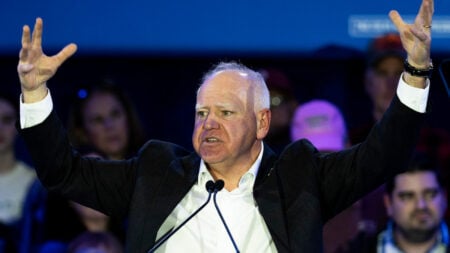Loot Boxes and microtransactions have been a hot commodity recently, as gamers are up in arms regarding company’s flooding their games with play to win mechanics. But another issue has arisen regarding the ethics of the practice as well, as many believe the practice is gambling.
While the ESRB denies that these mechanics are explicitly gambling, many amongst the public disagree, stating that the practice exploits the gambling tendencies that are hidden amongst the process. The issue seems to be rising quickly in the political spectrum of the world as well though.
French Senator Jérôme Durain recently wrote a letter to the president of ARJEL, the French gambling regulator. In the letter, the Senator discusses a multitude of different things regarding loot boxes, even citing the recent controversy over EA’s Star Wars: Battlefront II. The translation below is courtesy of Reddit.
Paris, 16th of November 2017
Mr. President,
Following our exchanges during the parliamentary mission conducted with Mr Rudy Salles, I can only offer my congratulations on the positive trend in the world of video games in general and that of e-sport in particular. Economically dynamic, this cultural industry seems to me a positive contribution to the country: far from the accusation of being an ultra-violent culture that was made only a few years ago, video games allows millions of players to flourish, to exchange, and to develop a practice sometimes close to high level sport. French game developers and the champions of the latest games on the e-sport scene contribute to French cultural influence in the world. I believe that the balanced and benevolent position of ARJEL [French online gambling regulator], which prefers to keep e-sport and gambling distinct from one another, has contributed to the general dynamism that can be observed today.
This context, however, should not prevent us from following the numerous and rapid evolutions of the sector. Today, loot boxes seem to me to require special attention from the public authorities. Many players and specialized observers (see the article devoted to the subject in the magazine Canard PC) question the deleterious effects of the spread of these micro-transactions in the world of video games.
While I do not think it is necessary at this stage to put in place specific legislation, I wonder about the desirability of providing consumer protection in this area. The use of loot boxes conferring cosmetic additions to the games seems well-accepted by the public. The development of so-called pay-to-win practices is more contentious, as shown by the recent controversy over the game Star Wars Battlefront 2. Quite aside from the acceptance of the practice, some observers point to a convergence of the video game world and practices specific to gambling.
Transparency is not common with regard to statistics governing loot boxes, even though good practices sometimes exist. China has decided in favour of a transparency of win ratios. Some of our European neighbours (the United Kingdom and Belgium in particular) are looking into the matter through their regulatory authorities. So we see that the question is not unique to France. Does ARJEL have the infrastructure necessary for a general census of win ratios for micro transactions?
I am sensitive to the fact that dialogue is ongoing between the public authorities and the games industry, so I have written in similar terms to Mr. Mahjoubi, Secretary of State for digital affairs, and I have informed the SELL [French videogame consumer body], the SNJV [French games industry association] and the France e-sport association of these initiatives. Prompt and sincere self-regulation of the sector would be reassuring news at a time when some players predict the imminent arrival of e-sports betting. I am convinced that collective reflection will enable us to find a satisfactory answer to this new problem.
Yours sincerely,
Jérôme Durain”
It should be interesting to see how the practices and opinions of political leaders outside the United States will affect the state of loot boxes and microtransactions, as just as many prominent studios are based outside of the US, like many of Ubisoft’s studios.
It’s easy to see where the controversy stems from – after all, loot boxes are based on RNG (random number generator) systems that are identical to those employed in real money casino games and slots. It also doesn’t help that, according to The Guardian, there is a risk that childhood spending on loot boxes could increase the probability of developing an addiction to real money gambling later in life. And since micro-transactions and pay-to-win practices do put real money at stake, we completely understand the concerns of Senator Durai.
For more information, be sure to check back to the site for updates, as well as all of your other Nerdy News and Needs!






